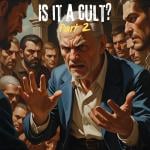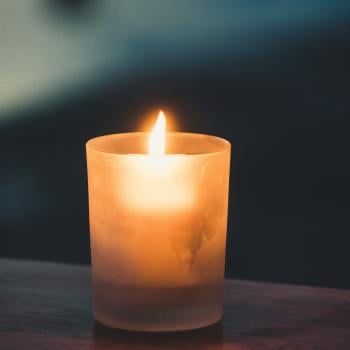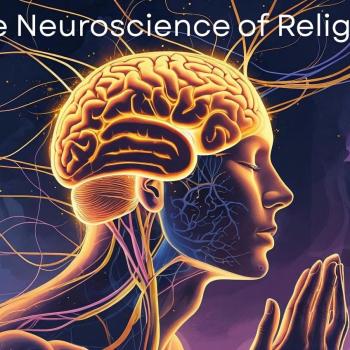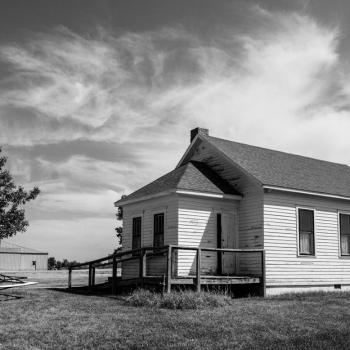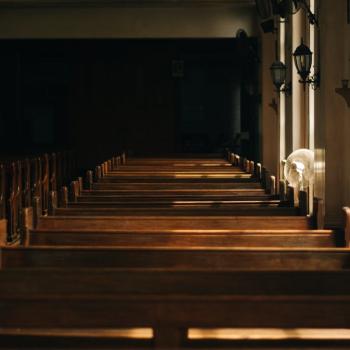
Excerpt from the book Copyright © 2025 by Karl Forehand
Why Go to Church?
“There are no foolish questions, and no man becomes a fool
until he has stopped asking questions.” – Charles Proteus Steinmetz
It’s been a while since I attended a church without a leadership role. I found it challenging to sit in the audience, so I got involved, even if I wasn’t always prepared. When we discuss the validity of church attendance in the 21st century, the main pushback we encounter is the question, “What about community?” Since this is the primary concern, we might as well address it first.
Most people agree that humans have a profound need for connection. This need extends to the rest of nature and is certainly true for us. We also refer to this as attachment, which benefits our growth and survival. Because of this deep desire, we join various organizations, including churches. We connect with others and gather resources to pursue different projects there. Strength lies in numbers; however, there are also pitfalls in groups, and some individuals may prefer to avoid being part of a group altogether.
As I reflected deeply on this, I realized that I was a pastor and had much to lose by accepting that I didn’t necessarily need to attend a physical building to be spiritual. Home churches were my first consideration. However, as a church planter, achieving initial success is crucial before everyone starts discussing building a church and forming an organization. The group often divides and creates smaller gatherings if it doesn’t develop into a mega-church.
We long for connection yet recognize that authentic relationships and healing often emerge from smaller groups. Church leaders may try to cultivate this dynamic through small group initiatives, but I have rarely seen it executed successfully, and it requires significant energy.
The small groups and larger groups are not real communities. The last two churches we attended after leaving the ministry were good, but like most churches of any significant size, they weren’t very effective at creating a sense of community. We spoke to the same 6 to 8 people each week, and we never interacted with them outside of church activities or services.
For the record, there are viable communities that evolve organically from small groups in some churches, rather than being orchestrated. If this defines true community, and community is our biggest concern, we don’t need clergy and staff to orchestrate it.
We have a community where we work, live, and enjoy ourselves. If our community is the primary focus, we shouldn’t engage with places or organizations that do not effectively foster a sense of belonging. A community should be diverse, encouraging growth, learning, and compassion. Politics should not define it.
Our book, Out into the Desert, explores the complexities of managing a church and its financial expenditure. In summary, 70% of the donations are allocated to building and staffing costs, while only 5% to 10% are reserved for “ministries.” Time also plays a crucial role, as significant time and energy are devoted to maintaining the organization, conducting Sunday morning (or Saturday) services, and keeping new members engaged before they leave for other places.
But what do they really offer? I conclude that many of the services provided by the church can often be found elsewhere at little or no cost. Sometimes, you get what you pay for, but the services from an organization like a church often seem overvalued. We donate money, volunteer, and spend countless hours preparing for and commuting to the weekly event. The service, or whatever term your tradition uses, typically features the same individuals leading it.
Sometimes I pay to see a concert or comedian, but I don’t visit the same venue every week, and certainly not to see the same person or band again. When I crave the excitement that music and a great speaker can provide, I can access the best performances online for free. I also enjoy these experiences whenever I’m ready, not when the performers are.
Joining a group offers both regulatory and comforting benefits. However, pitfalls can arise within organizations, as they often prioritize their needs over those of individuals. I don’t suggest avoiding church or whatever it may be called. Instead, I encourage everyone to take a year off from church to reduce their reliance on it and reflect on whether they still need the church’s offerings.
Invest the time and money you save into positive actions and notice how they enhance your spiritual well-being. It may feel unfamiliar initially, but soon you’ll find yourself savoring a leisurely breakfast on Sunday morning, realizing that you still possess a sense of community and more profound spiritual practice. You can donate directly to your favorite charity without any intermediaries.
Your life will become more cohesive, granting you great opportunities to reflect on nature, the universe, and your ability to heal and connect with all that exists. You’ll also feel less fearful because you’ve done something brave, and no one will dictate what you should fear. It’s your life, and you can pursue the options that make the most sense to you. However, avoid choosing what you’ve always done simply because it’s traditional.
Questions About Questions
What belief(s) did you inherit concerning this question?
How is your response to this question changing?
Learn to be Where You Are (Presence)
Learn to be Who You Are (Authenticity)
Finding Regulating and Somatic Healing
Are you genuinely committed to deconstruction and seeking more profound answers?
If that’s the case, this book was created for you. As a former pastor, I made the mistake of deconstructing a bit and then trying to start something new, as I was trained to do. The problem with that approach is that I wasn’t ready to begin something new.

I hadn’t delved deeply enough or asked enough questions. The first stage of deconstruction typically includes assessing our beliefs regarding hell and the afterlife, supporting queer individuals and women in their fight for equality, and achieving a better understanding of racism and privilege.
Many people in deconstruction communities expend significant effort criticizing Evangelicals and attempting to gain a following. While I believe they deserve intense criticism, this strategy fails to effectively tackle the problem because they generally don’t listen to us!
Our tendency to punish our former organizations sometimes overlooks the challenging process of healing and growth. It is the same trap we fell into in our former associations.

Campfires occupy a special spot in the mosaic of history. They act as communal hubs across different cultures and faiths. The campfire’s circular design fosters equal participation within the collective group. The flames at the center draw our focus and encourage face-to-face interactions as we exchange experiences, wisdom, and insights about the world beyond. It is where legendary myths and tales are born.
Order Now – Study Questions in each chapter!
This book is named Campfires in the Desert as it stems from nearly 400 discussions we held with individuals on our podcast, The Desert Sanctuary, and our aspiration to improve.
Available now!
Thanks for considering us, autographed copies are $20
Karl Forehand Campfires in the Desert – A Soft Book Release. Karl Forehand is a former pastor, podcaster, and award-winning author. His books include Out into the Desert, Leaning Forward, Apparent Faith: What Fatherhood Taught Me About the Father’s Heart, The Tea Shop, and Being: A Journey Toward Presence and Authenticity. He is the creator of The Desert Sanctuary podcast and community. He has been married to his wife Laura for 35 years and has one dog named Winston. His three children are grown and are beginning to multiply! You can read more about the author here.



